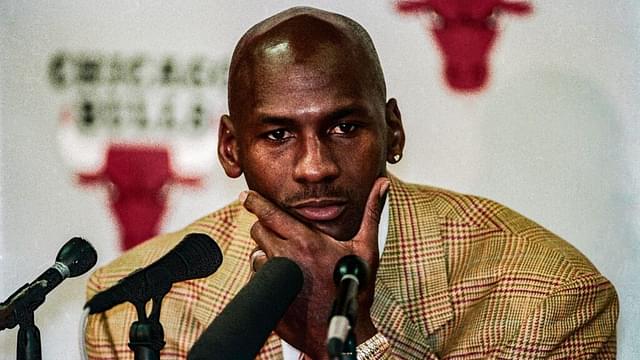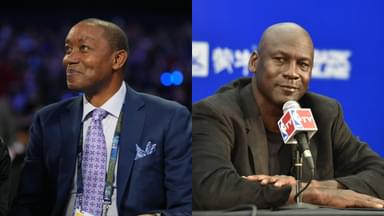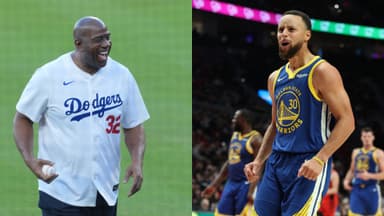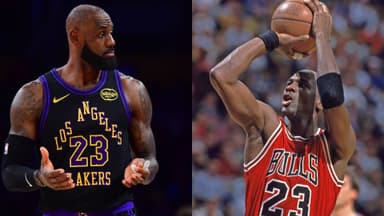In 1990, Magic Johnson was set to lock horns with Michael Jordan during a 1-on-1 game event at Caesars Palace in Las Vegas. Amidst the hype surrounding the competition, the Hollywood star, Jack Nicholson, bet on the Chicago Bulls’ shooting guard. It sparked a reaction from the then-Los Angeles Lakers point guard as he discarded the prediction to pick himself over MJ. His biography, When the Game Was Ours, captured the intricate details of the instance, while shedding light on the outcome.
Advertisement
Branded as ‘King of the Court’, the anticipation surrounding the matchup questioned Nicholson’s loyalty to the franchise. Despite being a “Lakers’ superfan”, he openly vouched for “the premier individual player” Jordan to win the $1 million prize money. His decision was also fueled by the perception around Johnson for being “pro basketball’s consummate team player”.
The narrative certainly undervalued the 5x champion’s greatness as he took a stance. “I’ve been playing one-on-one all my life. That’s how I made my lunch money,” the 3x MVP declared. The Michigan-born further added, “I didn’t have a best move. My best move was just to win, and that’s it. I did what I had to do to win”.
Despite the buildup, the event was eventually canceled leading to dissatisfaction of the players and their camps. “Michael is really
disappointed. His people are disappointed. We’re all disappointed. It was something we were all looking forward to,” Johnson later mentioned.
The premise showcased the desire of both the NBA greats to compete against each other under any circumstances. On top of it, the forecasts from the fans paved the way for a disruptive occasion in the history of basketball. The event held the potential to become a game-changer for the league’s players and their careers. Therefore, the eventual dissatisfaction remained justified as a historic matchup slipped out of hands.
How Michael Jordan and Magic Johnson’s preparations met setback

Soon after the announcement of the event, the then National Basketball Players Association’s president Isiah Thomas intervened. His alleged past grudges against Jordan spurred him to vote against the idea. “I believe that this sets a bad precedent,” the Detroit Pistons legend stated further depreciating the importance of the matchup.
Years after that, the reaction of the Black Jesus to this decision became public knowledge. In the biography, Michael Jordan: The Life, Roland Lazenby pointed out, “Jordan lashed out at Thomas’s intervention, charging that the Detroit guard was jealous because no one would pay to see him play”.
Alongside Zeke, the NBA too interfered. After all, the 30 minutes of promised basketball brilliance posed a direct threat to the popularity of the league. The pay-per-view concept of the competition was also unseen in the circuit, gathering rapid acclaim. “We’re not interested in seeing our players being promoted like fighters in Las Vegas,” Gary Bettman, then NBA lawyer declared.
Thus, several uncontrollable factors let the fans of the game down in the previous century. This marked a forgettable period for the supporters as an opportunity as big as this never re-occurred. There remained question marks over the integrity of the superior powers regarding the decision as the fanatics continued to lament.








